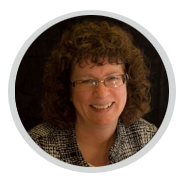
What’s the one big thing your company needs to consider as you examine the options for upgrading your human resources systems? Keeping user experience at the forefront of HR system use is the key to choosing a system that works for all.
User Experience: Making Systems Work for People
User experience describes how people react to and use systems. A system with a positive user experience is easy for people to use, and makes it easier for them to complete the tasks they need to finish on the system.
When systems such as HR software are designed with user experience in mind, the user’s learning curve is shortened. Although training may still be needed, the system tends to be more intuitive than not, so that simple tasks are quickly learned. If something isn’t readily apparently, it’s easy to find.
Choosing Your Next HR System
Many companies are investing in human resources technology. Human resources directors nationwide are donning their IT caps, or finding friends in the IT department who can work alongside them to choose a system that will meet all of their user needs.
When selecting your company’s next HR system, how it “feels” or its user experience is important. To get the best system for your company’s needs, the following tips can help you during the selection process.
- Know your goal: Identify and define the goal for your system. Be clear on what you’d like it to accomplish with it. Prioritize your projects and solutions so that if you have to choose among a few, you know which is the most important to the company so that you can narrow it down.
- Assemble your team: Of course the human resources department should be well-represented on the selection committee for your new software. IT should be there, but consider other departments, such as accounting and finance, who may also use the system regularly. Any regular users should be part of the group helping to choose the software.
- Ask questions: Ask the vendors demonstrating the potential systems plenty of questions. Make sure you’re all focused on the goals and project requirements shared by the team.
- Be open to the new: New HR solutions enter the market each day. Be open to new ideas and innovations. Vendors may know of new systems that better suit your needs than companies or brands you’ve asked them to demonstrate. Give your business systems consultants the problem, and work with them to find the solution.
Data-Driven HR
The role of the HR department has changed from being the personnel managers to being “personnel plus.” Recruiting, training and insurance remain important to the HR department, but the data provided by the HR department to the rest of the business is equally important.
Staffing data, for example, can be used to forecast your company’s ability to meet demand. Recruiting statistics can tell you how long it will take to fill a skilled position when someone is out on medical leave. All of these facts, once made available to your company through new and improved HR systems, can help you manage workflows better to improve business.
Planning HRIS Implementation: A Checklist
Upgrade Your HR System Now with BAASS Business Solutions, Inc.
BAASS Business Solutions can help you find the right HR software tool to maximize the available data from your HR department and help your HR team manage its tasks easily. From recruiting to benefits administration, the right software can make a big difference in productivity. We’re committed to helping you find the best solutions through software.
Contact BAASS Business Solutions online or call us at 1-888-650-5544.
